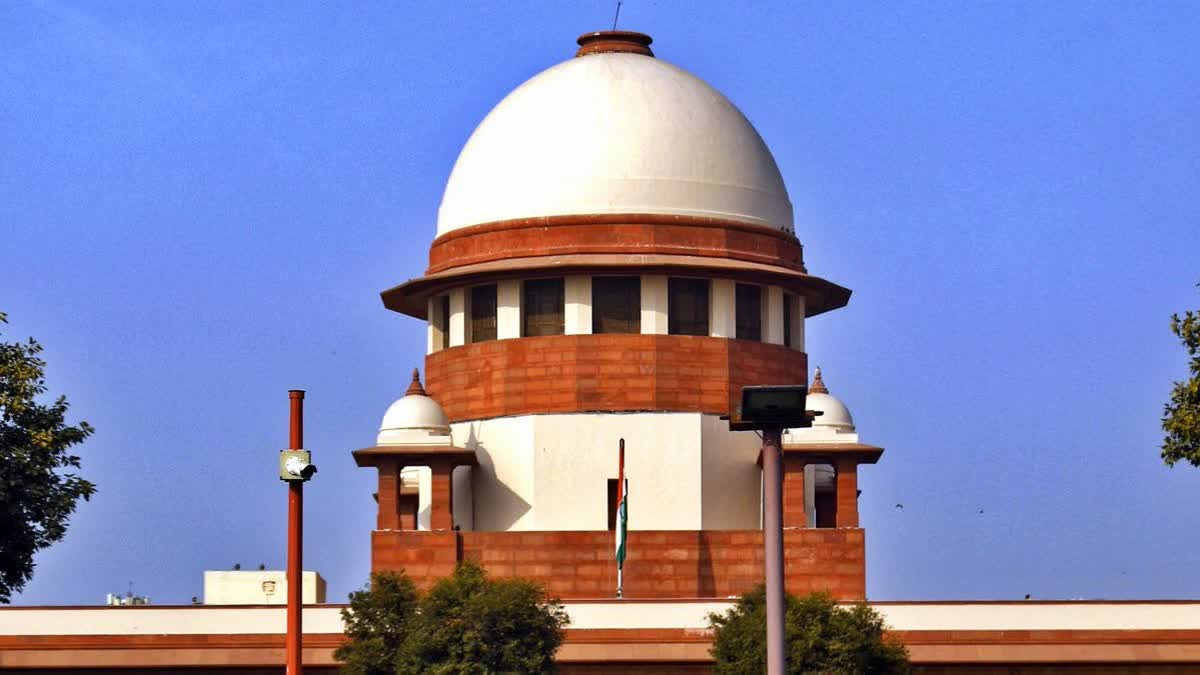New Delhi:The Supreme Court Monday said a "pernicious" trend prevalent in Telangana has caught its attention, where some police officers seem to be oblivious of the fundamental rights guaranteed by the Constitution and are curbing the liberty and freedom of the people.
A bench comprising Justices Surya Kant and Dipankar Datta made the observation while quashing a detention order passed against the husband of a detainee.
The bench noted: “A pernicious trend prevalent in the state of Telangana has not escaped our attention. While the Nation celebrates Azadi Ka Amrit Mahotsav to commemorate 75 years of independence from foreign rule, some police officers of the said state who are enjoined with the duty to prevent crimes and are equally responsible for protecting the rights of citizens as well, seem to be oblivious of the Fundamental Rights guaranteed by the Constitution and are curbing the liberty and freedom of the people. The sooner this trend is put to an end, the better”.
Justice Datta, who authored the 52-page judgment on behalf of the bench, said that viewed reasonably, the period of detention ought to necessarily vary depending upon the facts and circumstances of each case and cannot be uniform in all cases. “Detention being a restriction on the invaluable right to personal liberty of an individual and if the same were to be continued for the maximum period, it would be eminently just and desirable that such restriction on personal liberty, in the least, reflects an approach that meets the test of Article 14”, said the bench.
Justice Datta said it requires no serious debate that preventive detention, conceived as an extraordinary measure by the framers of our Constitution, has been rendered ordinary with its reckless invocation over the years as if it were available for use even in the ordinary course of proceedings. “To unchain the shackles of preventive detention, it is important that the safeguards enshrined in our Constitution, particularly under the ‘golden triangle’ formed by Articles 14, 19 and 21, are diligently enforced”, said justice Datta.
The apex court made these observations while quashing a preventive detention order against the husband of one Ameena Begum who had moved the Telangana High Court in a habeas corpus petition earlier this year. On June 28, the high court dismissed the petition and refused to set aside the detention order of March 24, 2023. The state government issued a detention order directing for the detention of the petitioner's husband for 12 months.
The apex court also laid down guidelines for courts to test the legality of orders of preventive detention. In the present case, the top court said it has come to the conclusion on facts that the activities attributed to the appellant’s husband as such cannot be branded as prejudicial to the maintenance of public order.
